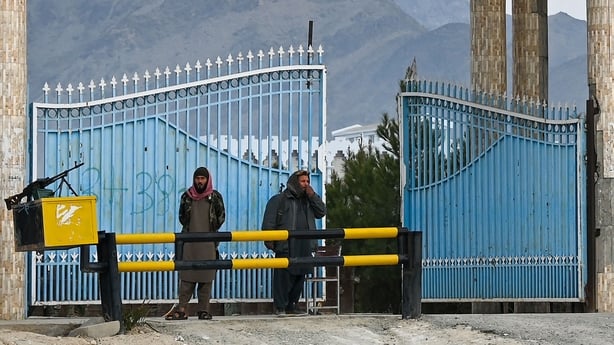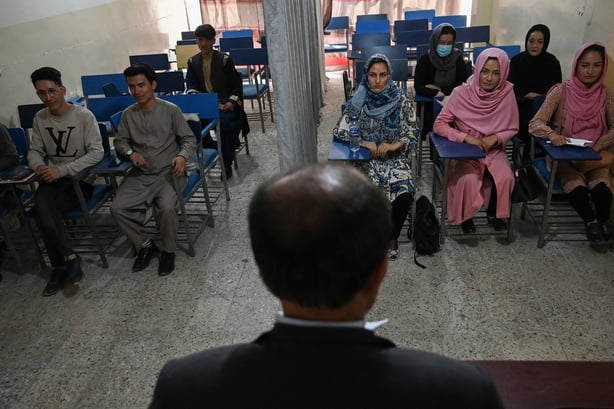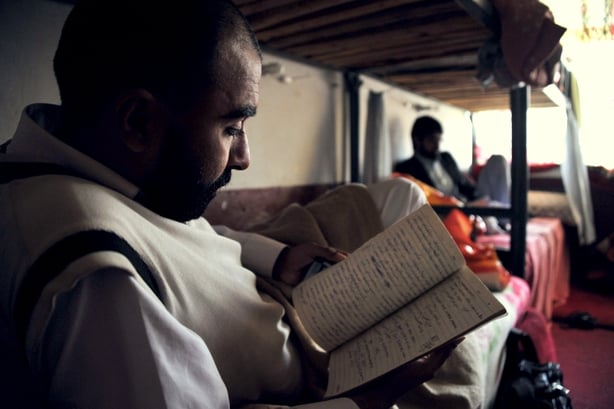Some public universities opened in Afghanistan today for the first time since the Taliban seized power in August, with a trickle of women attending classes that officials said would be segregated by sex.
Most secondary schools for girls and all public universities were shuttered when the hardline Islamist group stormed back to power, sparking fears women would again be barred from education - as happened during the Taliban's first rule, from 1996-2001.
"It's a moment of joy for us that our classes have started," Zarlashta Haqmal, who studies law and political science at Nangarhar University, told AFP.
"But we are still worried that the Taliban might stop them."
One analyst said the reopening of universities was a "critical marker" on the Taliban's road to international recognition.

Officials said universities in Laghman, Nangarhar, Kandahar, Nimroz, Farah and Helmand provinces opened today.
More were scheduled to resume operations elsewhere in the country later this month.
An AFP correspondent saw one small group of women, wearing the all-covering burqa, enter Laghman University this morning.
The men who attended - ferried to the campus in local taxis and buses - were dressed in traditional tunics known as shalwar kameez.
Attendance was very light and Taliban fighters guarded the entrance, a tripod-mounted machine gun resting on a boom gate.
Most students declined to offer their thoughts on returning to class, with some saying they had been warned by authorities not to speak to the press.
Journalists were prevented from entering the Laghman campus and universities in other provinces.
'Critical marker'
The Taliban have said they have no objection to education for women, but want classes to be segregated and the curriculum based on Islamic principles.

"We were told that the classes will be held according to the Sharia law," said Malik Samadi, a 23-year-old mathematics student.
"I hope that they keep all the courses, because society needs them."
"Education is the foundation of a country," said civil engineering student Munsefullah at Helmand University, expressing joy at returning to his studies.
Yesterday, the United Nations Assistance Mission in Afghanistan said the reopening of universities was an "important step" as it offered equal access to education for all.
The reopenings come a week after a Taliban delegation held talks with Western officials in Norway, where they were pressed on improving the rights of women to unlock billions of dollars in seized assets and frozen foreign aid.

The halting of aid has triggered a humanitarian crisis in Afghanistan, which has already been devastated by decades of war.
No country has yet recognised the new Taliban regime, which has promised a softer version of the harsh rule that characterised their first stint in power.
The regime has imposed several restrictions on women, including banning them from many government jobs.
The Taliban say all girls' schools will reopen by the end of March.
"The reopening of public universities ... would bode well for the return of girls (to school) around the country," United States Institute of Peace analyst Andrew Watkins told AFP.
"This is the Taliban taking a step that would be a critical marker in moving closer towards recognition."

